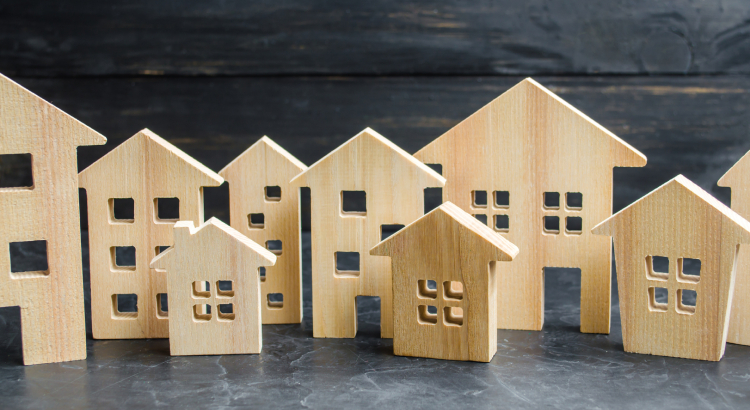FROM OUR PARTNERS

For many people, getting a mortgage is the most significant financial move of their life. However, getting a mortgage is almost always far from straightforward. Many factors can negatively impact a mortgage. Some of these are within your control, and some are outside of your control.
It’s critical to know the ins and outs of your loan. The best way to determine this is via a mortgage capacity report — it will tell you what factors determine mortgage interest rates for borrowers.
Generally, there are 10 key factors that can affect a mortgage rate.
The best credit score for borrowers is around 740. That’s because lenders favor borrowers with credit scores between 700 and 740. Nonetheless, borrowers with mortgage rates between 620 to 700 will likely have to pay higher mortgage rates.
If borrowers have credit scores below 620, they may struggle to obtain a conventional loan. As a result, they might have to opt for government-backed loans, such as an FHA loan, FHA 203(k) loan, VA loan, and etc. Lenders see these loans as less-risky because the government backs these loans.
Unfortunately, a lot of borrowers don’t have strong credit scores. This could be because they are young and have zero credit history, their credit score was impacted due to financial decisions in the past, or they’re self-employed. So you have to get creative with your financing options when your credit score is low.
» MORE: Find the best mortgage lenders
The loan-to-value (LTV) ratio is a critical aspect that determines your loan rates. It’s calculated by dividing the mortgage amount by the value of the house. If you put a $40,000 down payment on a home worth $160,000, you have a 25 percent down payment, and your mortgage would be $120,000. This means your LTV is 75%.
However, if your LTV is higher than 80%, many lenders consider this high. According to lenders, this LTV puts them at a higher risk, and it often leads to increased mortgage rates.
The loan term is a significant factor in determining your mortgage rate. If you opt for a shorter period, such as a 15-year term.
Furthermore, a lot depends on the type of loan you’re looking to get. For example, many borrowers will choose a 30-year period because it will decrease the repayment amount. However, it’ll lead to a higher mortgage rate. You’ll have to weigh up your options and how quickly you can afford to repay the loan.
The type of loan is quite possibly the most important thing that determines your mortgage rates. There are various mortgage types, and these include the following:
These loans have various eligibility requirements, and you’ll have to talk to your lender about these requirements. It’s an excellent idea to talk to many lenders to determine your best options.
The location of your home is critical. Many lenders will give borrowers different interest rates depending on their home’s location. For example, mortgage rates are likely to be different if you buy a home in Wisconsin instead of NYC.
Although you may have your heart set on a house in one suburb, you might get a better mortgage rate in a nearby suburb.
These factors are often within your control, and a mortgage capacity report can help you understand these aspects.
It all starts with demand and supply. More jobs mean more income in the economy, so individuals are more likely able to purchase a home with a mortgage. Since there is more demand for mortgage products, banks tend to raise their rates. The opposite effect would be if there are fewer jobs, there is less demand for mortgages meaning lower rates to get customers purchasing.
The housing market condition is out of your control but essential in determining your mortgage rates. For example, when builders build fewer houses, you’ll probably see a decline in mortgage applications. In turn, you’ll see lower interest rates.
Many banks and securities firms in the financial sector will market mortgage-backed securities. Mortgage lenders will often change how much they charge for their mortgages depending on the bond market. Higher rates in the bond market will increase rates on mortgages.
The economy has a considerable impact on your ability to obtain a loan. For example, it became difficult for most borrowers to obtain a mortgage after the 2008 Global Financial Crisis (often referred to as the GFC). The crisis was primarily started by the mortgage sector handing mortgages to people without the means to repay the loan. Depending on the economy, it can be difficult to predict if a loan will be approved or not.
The Federal Reserve has a significant impact on getting mortgages. That is because one of the Federal Reserve’s most significant objectives is to maintain a stable rate of inflation. As a result, the Federal Reserve controls the amount of money that banks borrow from each other. In turn, this helps the Federal Reserve control the money supply.
The Federal Reserve tends to respond to the current economic situation. Of course, that’s entirely outside of your control, but it’s a significant part of the current mortgage rates.
There are so many factors determining your interest rate. Unfortunately, it can be complicated, and it’s often out of your control. Alternatively, it is ideal to shop around the market and dip your sleeves into the various options available.
Getting a mortgage is a choice that will impact your financial future. Therefore, take your time looking around, and seek professional advice before signing the dotted line.